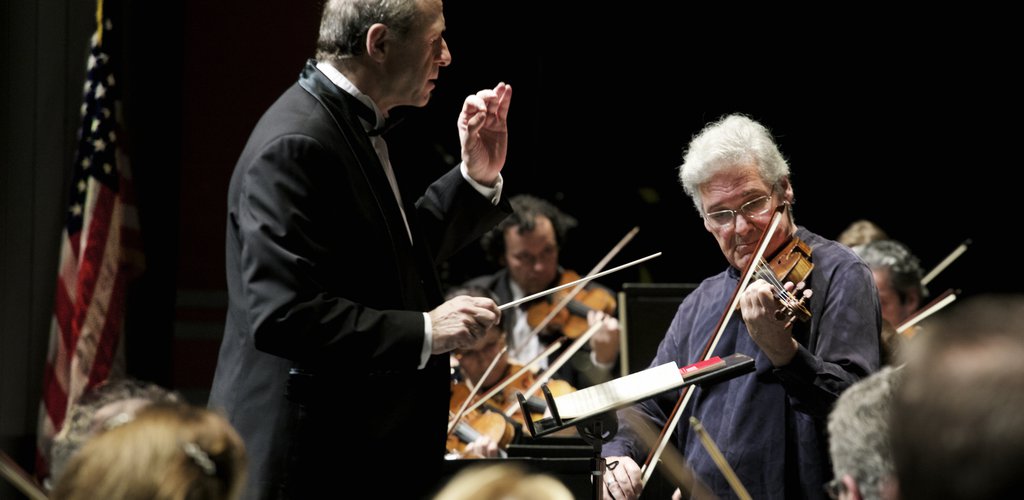So what was it on Wednesday, in their second and final concert this season at Avery Fisher Hall? Maybe their encore, Brahms’s “Abendständchen” from the “Drei Gesänge,” sung — yes, sung — charmingly in six-part harmony? Or Mozart’s “Turkish” Violin Concerto with the eminent Pinchas Zukerman, whose playing had a worn elegance, frayed in intonation but all the more dignified for it?
Neither, actually, just a stupendous performance of Brahms’s First Symphony.
Its brilliance was a mix of the humdrum and the visionary. Take the seating plan. Any orchestra unfamiliar with Avery Fisher faces the challenge of balancing its own personality with unflattering acoustics. Mr. Fischer’s solution arrayed the double basses high across the rear of the stage, made a bowl for the rest of the strings and perched the woodwinds in between, projecting through the tumult.
It’s a rare arrangement, often used in Vienna’s Musikverein, and perhaps its effects are those of a placebo. Even so, it overcame the hall’s boxiness and added the thrill of sight, vital itself to how we perceive sound. Shocks of movement passed from Mr. Fischer’s arms through the zealous principal cellist, Peter Szabo, up to the lead bassist, Zsolt Fejervari, making newly clear the bass line’s importance to Brahms’s purposes. With tempos added elastically, organically related to structure in the Bülow-Furtwängler-Karajan tradition, the unlikely drama of Brahms’s symphony was freshly rousing.
To those fluctuating speeds — immaculately realized — Mr. Fischer layered still more. This orchestra can roar with the darkness of night but change hues at will, too. So the first movement’s sense of arrival was tinged with desolation by plaintive winds and cavernous strings, and there was a particularly Hungarian sense of melancholy to Victor Aviat’s oboe solo and the heavy violins in the second. But the finale’s horn calls came with shafts of light, unburdening, freshening and transforming the whole orchestra’s tone for the journey on.
In other words, all the elements of performance worked as one, each in balance. All in a night’s work for what might be the best orchestra in the world. Not a bad choir, too.
